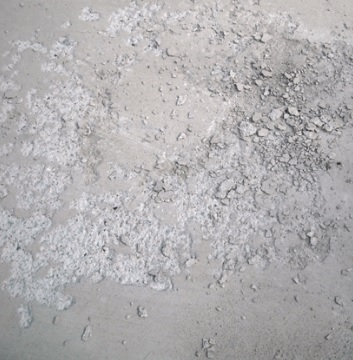There are two ways in which road salts and de-icing salts can damage concrete:
- Surface Abrasion: The salt sits on the concrete and movement over the surface will cause the salts to grind over the surface of the concrete. The best way to reduce damage caused by surface abrasion is to increase the strength of the concrete with a silicate concrete sealer. Silicate sealers chemically react to form a crystalline barrier in the pores that increases the strength and density of the concrete by up to 45%.
- Water Absorption: De-icing salts will melt snow and ice into water and the water will get absorbed into the concrete where it freezes within the pores, causing the concrete to crack and spall. The best way to reduce deterioration caused by water absorption is to seal the concrete with a Silane Siloxane water repellent sealer. Water repellent sealers will reduce the absorption of water on the surface to prevent it from being able to freeze within the pores.
Frequently asked questions about salt damage:
- Will a sealer stop salt damage to concrete? Sealers will help to reduce deterioration caused by salt, but they won’t stop damage because the surface of the concrete is still exposed. If you need to stop all damage to the concrete then you need an acrylic sealer because acrylic sealers leave behind a protective surface film. Learn about Acrylic Sealer Reviews.
- Can I use a densifier and a water repellent sealer? Yes you can, in fact, that is very common. If you were to do this then you would apply a densifier first and then a water repellent sealer 5-7 days later.
- Can I use a penetrating sealer and an acrylic sealer? You can, but there really isn’t a need because an acrylic sealer provides a protective layer over the entire surface.
Best Sealers to Reduce Salt Damage to Concrete
Silicate Sealers:
- Armor S2000 Concrete Sealer Review (concentrated)
- Stone Technolgies X-1 Concrete Sealer Review (pre-diluted)
- Ashford Formula Concrete Sealer Review (pre-diluted)
Silane-Siloxane Sealers:
- Armor SX5000 Concrete Sealer Review (average 4.8 star review)
- Siloxane PD Concrete Sealer Review (average 4.5 star review)

